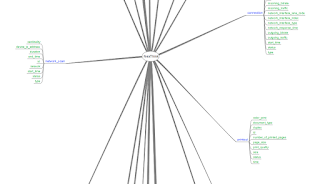Kali linux - Nessus
Nessus rocks so its a must on a pentesting box.. so here we go, installation/configuration/quick guide for the lazy..
cd ; wget http://goo.gl/CDTb5 -O Nessus-5.0.3-debian6_amd64.deb
dpkg -i Nessus-5.0.3-debian6_amd64.deb
and you will get...
dont forget to
rm Nessus-5.0.3-debian6_amd64.deb
go to Nessus HomeFeed (if you are a home user) and register to receive the activation code (xxxx-xxxx-xxxx-xxxx-xxxx)
Now you can go to https://localhost:8834 and continue with the setup.
If you want to use it from another box and you applied the simple firewall I recommended here don't forget to allow traffic to that port by adding after the last line
iptables -A INPUT -p tcp --dport 8834 -m state --state NEW -j ACCEPT
and then running the script again.
After you setup the product, put in the key-code you will see the admin interface.. which is lovely but... everybody loves metasploit so...
/etc/init.d/postgresql start
/etc/init.d/metasploit start
msfconsole
msf >
All we need to do now is load the plugin...
load nessus
Authenticate with our server...
nessus_connect admin:password@localhost:8834
Check out the existing scan policies
nessus_policy_list
And kick off our scan using the External Network Scan policy (-4)
nessus_scan_new -4 Target1 <ip>
We can check to see how its going with
nessus_scan_status
When the scan will finish we can run
nessus_report_list
And finally
nessus_report_get <id_of_the_scan>
Now you can see that the resuls of the scan have been imported on metasploit (just run 'hosts' and 'services' and you will see the new data.
If you want to see the results on the console you can always run
nessus_report_host_detail <ip> <port> tcp <report_id>
More to come :)
cd ; wget http://goo.gl/CDTb5 -O Nessus-5.0.3-debian6_amd64.deb
dpkg -i Nessus-5.0.3-debian6_amd64.deb
and you will get...
All plugins loaded
- You can start nessusd by typing /etc/init.d/nessusd start
- Then go to https://localhost:8834/ to configure your scanner
dont forget to
rm Nessus-5.0.3-debian6_amd64.deb
go to Nessus HomeFeed (if you are a home user) and register to receive the activation code (xxxx-xxxx-xxxx-xxxx-xxxx)
Now you can go to https://localhost:8834 and continue with the setup.
If you want to use it from another box and you applied the simple firewall I recommended here don't forget to allow traffic to that port by adding after the last line
iptables -A INPUT -p tcp --dport 8834 -m state --state NEW -j ACCEPT
and then running the script again.
After you setup the product, put in the key-code you will see the admin interface.. which is lovely but... everybody loves metasploit so...
/etc/init.d/postgresql start
/etc/init.d/metasploit start
msfconsole
msf >
All we need to do now is load the plugin...
load nessus
Authenticate with our server...
nessus_connect admin:password@localhost:8834
Check out the existing scan policies
nessus_policy_list
And kick off our scan using the External Network Scan policy (-4)
nessus_scan_new -4 Target1 <ip>
We can check to see how its going with
nessus_scan_status
When the scan will finish we can run
nessus_report_list
And finally
nessus_report_get <id_of_the_scan>
Now you can see that the resuls of the scan have been imported on metasploit (just run 'hosts' and 'services' and you will see the new data.
If you want to see the results on the console you can always run
nessus_report_host_detail <ip> <port> tcp <report_id>
More to come :)

